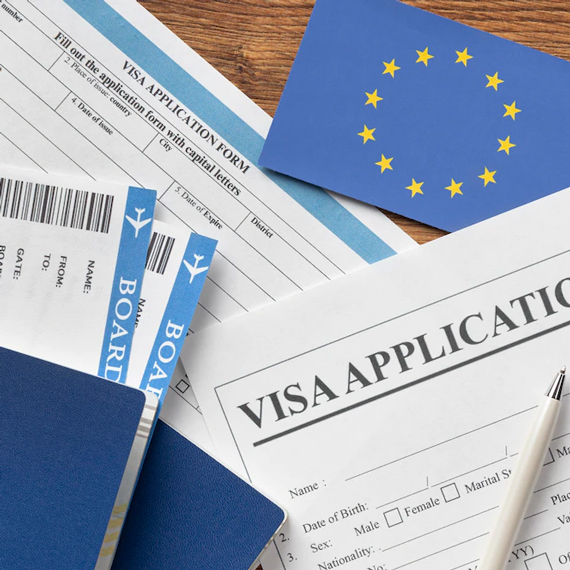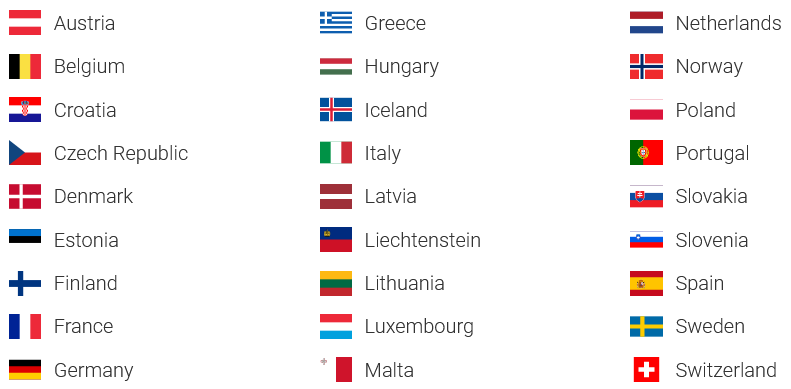This is the heading
85 Tottenham Court Road London W1T 4TQ
This is the heading
Mon - Fri 10:00 to 18:00
This is the heading
(+44) 75 1080 6767
85 Tottenham Court Road London W1T 4TQ
Mon - Fri 10:00 to 18:00
(+44) 75 1080 6767
Home > Schengen Visa

The Schengen area collectively refers to the 27 European countries united by a landmark multilateral agreement allowing free travel between and across its member states. Countries in the Schengen area have lifted border controls for travelers coming through their borders.
All Schengen countries are located in mainland Europe except Iceland and Malta.

Schengen visa is valid for up to 90 days in a 180 day period. This means that you can stay in the Schengen area for a total of 90 days with a Schengen visa. However, validity differs from duration of stay. A Schengen visa is usually valid for longer than the length of stay (ie 90; the number of days you are allowed to legally stay in the Schengen area). For example, say you get a visa that is valid from January 1st, 2021 to December 31st, 2021. This means that your Schengen visa is valid for entry into the Schengen area at any time during that approximately 1-year period. However, once you enter the Schengen area, your stay is limited to 90 days.
You will spend the most time applying by submitting an application to the consulate/embassy of the Schengen state. Once you are at your nearest consulate/embassy, you can complete an application for a Schengen visa, which includes various documents and forms, pay the visa fee and (if applicable) submit your visa and provide your fingerprints. Make an appointment.
The number of times you can enter the Schengen area depends on the number of entries specified on your Schengen visa. Single-entry Schengen visas allow just one entry to the Schengen area; double entries allow two entries; and multiple entry allow a limitless amount.
The normal processing time for a Schengen visa is between 15-30 days. Some people get visas within two weeks; In rare cases, the consulate may take up to 60 days.
Yes. When you apply for a Schengen visa, you must indicate the reason for your travel, aka your purpose. The purpose you select will determine the supplementary documents you need to submit. You can choose from the following 10 objectives:
Airport transportation
business
cultural
treatment
On official visit
sport
Study
tourism
Visiting family/friends
other
Depending on where you are applying from, you can apply for a Schengen visa online. The general Schengen application form is available online, and some countries allow you to submit an application online through country-specific online visa portals. However, even if you apply online, you must print a paper copy of your online application and submit the application in person at the consulate/embassy where you are applying.
A uniform visa (USV) allows you access to the entire Schengen area; All 26 member states. A uniform visa is therefore in contrast to a limited territorial visa (LTV), which limits access to a specific member state(s). So USV and LTV are the two classes of Schengen visas available, each describing your territorial access to the Schengen area. The Schengen visa category you select will determine your degree of access to the Schengen area, i.e. whether you can travel to all, some or one of the 26 Schengen member states.
You may have noticed a requirement to submit biometric information when submitting your Schengen visa. Biometric information is another way of saying fingerprints, which you must provide to apply for a Schengen visa. You will probably be asked to submit your fingerprints when you submit your visa application. All applicants are required to submit fingerprints except children below 12 years of age and those who have already submitted fingerprints within the last 59 months.
You have the right to appeal if your Schengen visa application is rejected. The appeal process is different for each country, but usually involves submitting a letter to the consulate/embassy where you first applied within 3 weeks of receiving a negative decision.
No, If you apply for a visa and are rejected you will not get your money back.
Yes. Family members in the E.U. Citizens who are not themselves citizens of a Schengen state must apply for a Schengen visa. However, family members in the E.U. Citizens may not need an airport transit visa if they are traveling through an airport located in a Schengen state.
Applicants looking to show “proof of subsistence” (i.e. you can pay for your travel) can submit bank statements, payslips, or other personal financial records with their application.
Your passport must be valid for the entire duration of your Schengen visa. If it expires during your stay in the Schengen area, you will not be approved for a Schengen visa. In this case it is recommended that you renew your passport before applying for a Schengen visa.